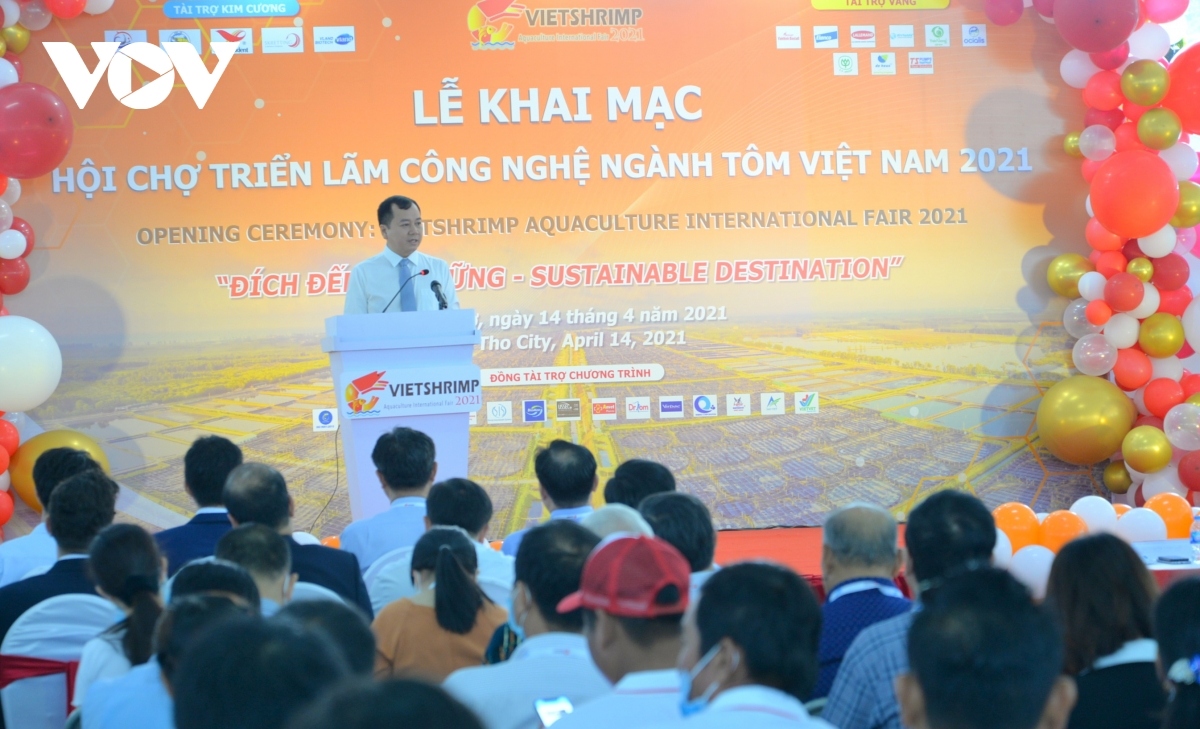
This information was released during the opening ceremony of the shrimp aquaculture international fair 2021 which got underway on April 14 in the Mekong Delta city of Can Tho.
The event offers an ideal venue for managers, scientists, traders, and farmers to share and introduce various new technology products and advanced models, strengthen connectivity between producers and consumers, while elevating the image of Vietnamese shrimp in the global market.
Nguyen Viet Thang, chairman of the Vietnam Fisheries Association, said despite the impact of the novel coronavirus (COVID-19) pandemic, local shrimp export turnover reached over US$3.7 billion last year.
Currently, Vietnam is home to roughly 200,000 hectares of hi-tech shrimp farming, the majority of which is in the two provinces of Bac Lieu and Soc Trang in southern Vietnam.
Statistics show with the global shrimp industry averaging an annual growth rate of some 7%, total global shrimp production is anticipated to reach 15 million tonnes by 2045.
Many industry experts said Vietnam could become the world's leading shrimp producer and account for about 25% of the global shrimp market share with an output of four million tonnes of raw shrimp worth US$20 billion by 2045.
This prediction can come true if they said proper strategies are implemented in order to develop the domestic shrimp industry in a sustainable manner, whilst also adapting to issues relating to climate change and making efforts to protect the environment.
Tran Dinh Luan, director general of the Directorate of Fisheries in Vietnam, noted recent years has seen several effective shrimp production models implemented, attracting a host of groups and companies to get involved in the value chains of the local shrimp industry.
Luan also pointed out that with proper strategies, the shrimp sector is expected to gross an export turnover of between US$3 billion and US$ 4 billion, or even as high as US$6 billion, in the near future.
The international fair will offer an opportunity for managers, businesses, and localities to gain greater access to the latest technologies in order to develop the shrimp industry in a sustainable manner, Luan said.